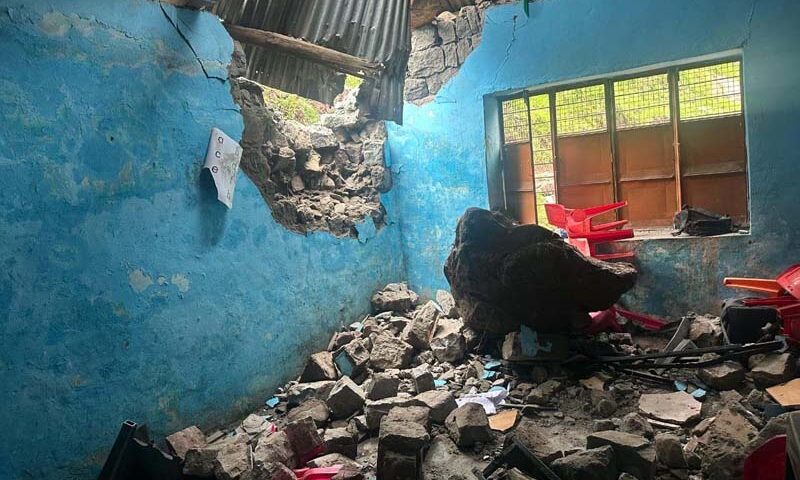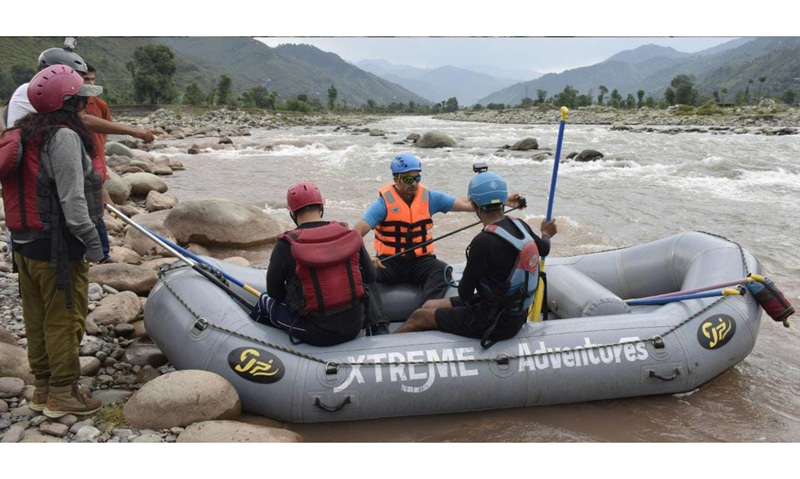Poonch in Mourning: Families Shattered by Pakistani Shelling
Poonch 09 May 2025: The cross-border artillery and mortar shelling from Pakistan along the Line of Control (LoC) has unleashed a wave of destruction and grief in the Poonch district of Jammu and Kashmir. What began as unprovoked violations of the ceasefire agreement weeks ago has now intensified into one of the deadliest barrages in recent memory, leaving behind a trail of shattered homes and grieving families.
At the heart of this devastation are innocent civilians, including four children, who have lost their lives to the relentless bombardment. With 13 civilians killed and 59 others injured, the once-thriving town of Poonch now stands eerily silent—its streets deserted, its survivors haunted by the horror of the past few days.
This article explores the human impact, government response, and uncertain future of those affected, while reflecting on how the geopolitical crisis has turned personal for countless families caught in the crossfire.
Intensified Shelling: How the Nightmare Began
Escalation of Hostilities
Pakistani forces increased artillery fire on Wednesday, hours after Indian airstrikes on terror hubs in Pakistan and Pakistan-occupied Kashmir (PoK) as part of Operation Sindoor. Mortars and artillery rounds struck civilian neighborhoods, reducing homes to rubble. Pakistan’s shelling targeted key villages, including Bhainch, Sandigate, Jhallas, Salotri, Digwar, Ajote, Khari, Gulpur, and Nalla, causing mass panic.
The assault marked one of the deadliest days for civilians in Poonch, forcing 90% of the town’s population to flee to Surankote and Jammu in search of safety.
The Human Cost: Stories of Loss and Survival
A Father’s Worst Nightmare
Among those killed was Vihaan Bhargav, 13, whose life was cut short when a Pakistani mortar struck his family’s car. His father, Sanjeev Kumar Bhargav, a government employee, recalls the moment he saw his son’s scalp torn and blood pouring out—a scene too devastating to comprehend.
“For a moment, I couldn’t breathe. I saw him lying still, and I knew my boy was gone,” Bhargav said, his voice shaking with grief.
A Town Abandoned
Majority of Poonch residents have fled, leaving behind empty homes, shuttered shops, and a ghost town-like silence. Only 100 to 150 families remain, either unable to leave or unwilling to abandon their ancestral lands. Young men and elderly individuals struggle as resources grow scarce.
“Every explosion felt like it was coming for us. I spent the night alone, hiding in a 12×12-foot basement,” said Vicky Gupta, 24, who fled the town on his motorcycle the next day.
Government Response: Evacuations & Relief Efforts
50 evacuation buses stationed in Baramulla to transport displaced villagers. Shelters prepared to house up to 10,000 evacuees, with free food distribution. Medical teams deployed—injured civilians receiving care at Baramulla Medical College. Security forces continue military operations to prevent further attacks.
Baramulla Deputy Commissioner has refrained from commenting on civilian evacuations, though officials confirm relief operations are in full force.
Tourism & Economy Crippled
Gulmarg Gondola Shut Down
Authorities closed Gulmarg Gondola, fearing potential security risks near the LoC. Tourists evacuated, and hoteliers instructed to vacate properties. Local businesses suffering, as tourism halts indefinitely.
Impact on Trade & Livelihoods
Markets face shortages, with disruption in supply chains. Retail shops shut down, affecting local businesses. Daily wage workers struggle, with employment opportunities disappearing.
Poonch’s economic lifeline has been severed, with many fearful of permanent damage to their trade and tourism industries.
Political Fallout: Demand for Compensation & Protection
National Conference leader Ajaz Jan demands ₹10-lakh compensation for families of deceased civilians. Further ₹1-lakh compensation proposed for the injured. Appeals to strengthen border security, preventing civilian casualties in future conflicts.
As the situation remains volatile, officials warn that military tensions may escalate further, impacting India-Pakistan diplomacy and regional stability.
What Comes Next?
Military retaliation expected, as Indian forces aim to secure border regions. Evacuation efforts ongoing, prioritizing civilians in vulnerable locations. Diplomatic measures uncertain, with calls for de-escalation growing louder.
For now, Poonch remains in mourning, with families grappling with the loss of loved ones, and a town struggling to piece together what remains.
Bottom-Line: A Town Forever Changed
The recent events in Poonch have left scars too deep to heal quickly. With innocent lives lost, homes destroyed, and an uncertain future ahead, Kashmir stands on the edge of crisis.
As residents rebuild and governments negotiate, one question lingers—will this be the last time innocent families pay the price for a conflict beyond their control?




